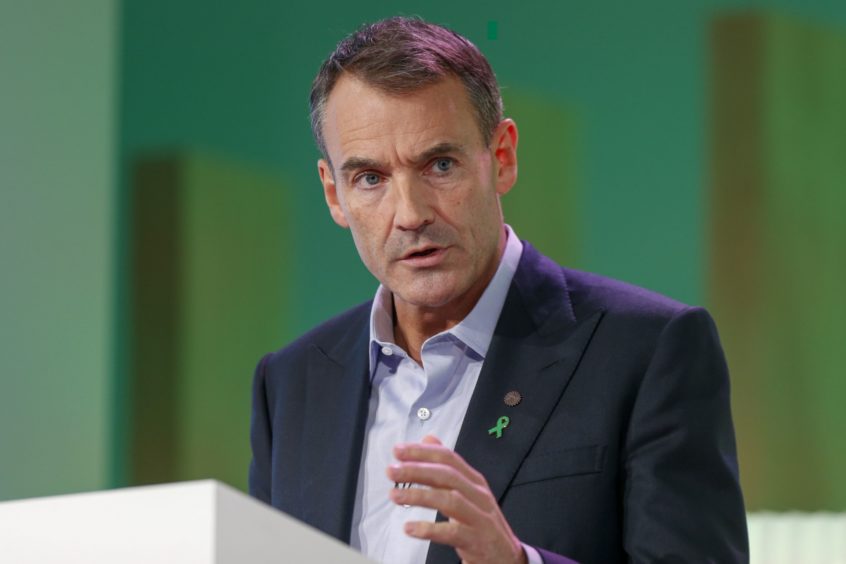
The CEO of BP has described an IEA net zero scenario calling for the end of new oil and gas projects as “credible”, despite the firm planning major fossil fuel developments.
A landmark report last month from the International Energy Agency (IEA) set out that no new oil and gas projects should be approved and exploration should stop in order to achieve net zero emissions globally by 2050.
BP CEO Bernard Looney discussed the IEA report at the opening of the Oil and Gas UK (OGUK) industry conference on Tuesday.
Mr Looney said: “Oil and gas is going to be around. It’s not a popular thing to say in some camps but there isn’t a scenario out there that’s credible, including, by the way, the IEA net zero scenario, that doesn’t have oil and gas in it in decades to come.”
It comes as BP plans major oil and gas project sanctions in the coming years which would appear to be in conflict to the scenario, such as Clair South, the third phase of the multi-billion barrel Clair field west of Shetland.
Internationally, the firm is also due to greenlight schemes such as the Greater Tortue Phase 2 and 3 developments in West Africa.
However BP’s journey to net zero, and that of the UK sector at large, differ from the pathway set out by the IEA.
The firm is transitioning from an International Oil Company to an International Energy Company, cutting oil and gas production by 40% by 2030 and increasing investment in renewables 10-fold in that period.
BP plans to go net zero on an absolute basis across its operations by 2050 or sooner, and reduce emissions on the products it sells by 50% by 2050 or sooner.
Rival Shell was last month ordered by a Dutch court to increase its 2030 target for cutting emissions from 20% to 45%.
Mr Looney’s comments to OGUK come after BlackRock, the world’s largest asset manager and the top investor in BP, said on Friday it had backed a shareholder resolution calling for faster action on climate change, which the BP board had opposed.
The Follow This amendment called for BP to publish short, medium and long-term targets to reduce emissions, consistent with the 2015 Paris Agreement.
Speaking to the conference, Mr Looney said oil and gas, specifically the latter, is needed for parts of the world to transition.
He said: “If Asia is going to meet some of its targets then we’ve got to stop burning coal and burn something else and, quite frankly, the quickest way to do that is natural gas.
“That’s a big part of acknowledging some realities. People talk about our strategy, oil and gas is core to BPs strategy. Without oil and gas we can’t transition.”
Mr Looney was joined on the opening session by Deirdre Michie, chief executive of Oil and Gas UK, who said it would be “grossly irresponsible” to shut down the sector while society is still in need of its products.
Discussing the IEA scenario, she said: “We know that prematurely shutting down domestic supply does nothing to stop demand.
“In fact, in my opinion, it would be grossly irresponsible to shut down our sector while we’re still in need of its products. Not only would this undermine our energy security, it would also damage livelihoods, local communities and the wider economy.”
Ms Michie highlighted that her trade body agrees with the IEA on areas including ramping up CCS, hydrogen production and use of domestic supply rather than imported fuel, which has a higher carbon footprint.
The North Sea sector has already committed to halving emissions in the next 10 years on the road to net zero by 2050.
Recommended for you


